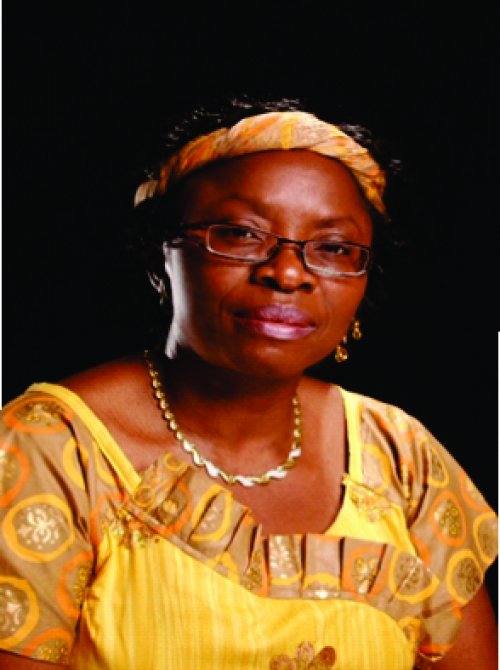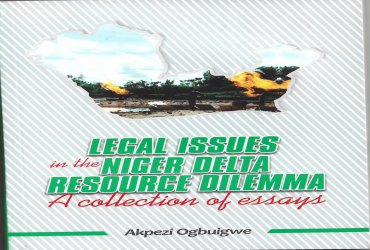UNESCO World Conference on Education for Sustainable Development

UNESCO World Conference on Education for Sustainable Development
Please join us today on UNESCO YouTube channel as our own Akpezi Ogbuigwe, founder of ANPEZ Centre for Environment and Development moderates the session 6 below from 11:30 - 13:00:
Plenary: Testimonies of transformative action for the SDGs – How does societal change for sustainable development happen?
Keynote speech by Mr Pedro Pablo Opeka, Priest and founder of Akamasoa, Madagascar.
Speakers:
1. Ms Curmira Gulston, ESD Youth Leader, Trinidad and Tobago;
2. Mr Kim Nøhr Skibsted, Executive Director, Grundfos Foundation, Denmark.
Moderator: Akpezi Ogbuigwe,* Founder, Anpez Centre for Environment and Develo…
[08:00, 18/05/2021] Ev'rest Nwankwo: Today at the session we will hear of the story of AKAMASOA and how the life of over 45,000 poverty stricken family was changed forever in Madagascar.
MADAGASCAR FOUNDATION presents AKAMASOA
A humanitarian association in Madagascar
founded by Father Pedro Opeka action, hope and solidarity
The Humanitarian Association AKAMASOA has been created in 1989 in order to help poor people of Antananarivo who lived in the garbage dump of Andralanitra and in the streets of the capital. The association aims to move people out of these inhuman places to live a life with dignity. Since the beginning we are convinced that dignity is strongly linked to 3 things: a roof, a work and education. It was unthinkable that these persons still living in an indecent place without access to healthcare.
We started our work with the poor people themselves; we were not able to give the material that they needed; we wanted to move them out of this hell because we were convinced that no human deserves to live in such conditions. We had the belief and faith in a possible better future for this abandoned population. We were also convinced that a sustainable help could not be brought only from outside of the country, and the most important was to change the old habits: we wanted to help but not to assist. It is for these reasons we have always worked with poor people helping them to build structures – schools, work places, dispensaries – which with they could rebuilt their lives and prepared the future of their children.
We chose to work with these persons who lived in misery. We needed to find a job and leave the garbage dump. We thought that work and countryside could cure and free them from hopelessness, begging, delinquency and crime circle: with some families who wanted to move out, we went to the countryside, 60 km north of Antananarivo, to work the land and build solidarity communities. We needed to go far away from the capital, deceptive promises of the city and of the garbage hell. Find life again.
Together we have built houses in which they are living. First hood made houses and then brick houses and also schools.Quickly, we organized the first village.
Today, after 27 years of fight, our association AKAMASOA has helped 500 000 Malagasies. 4,000 houses have been built and 25000 persons are living in. Each village has schools, dispensary, and work places: quarry, brick laying, carpentry, agriculture, art and craft. 14,000 children are enrolled in school. And in 2004, our association has been recognized Public Utility by the State, what highlights the need of our presence and action within the social work of the Island.
We are proud of our achievements but we also know that is not enough. It is a day-to-day fight: concerning problems of each village or poor people who still asking for the AKAMASOA assistance. In 2016, our reception center counted 43,487 persons who needed a punctual emergency aid: meals, clothes, blankets and soap.
Indeed for a quarter of century we have not seen an improvement of life conditions of the Malagasy population. On the contrary today 9 Malagasies out 10 are living with less than $1, 5 per day: below the poverty line defined by the World Bank. Our fight is more than necessary: we continue, led by past achievements, outraged by the increasing poverty, convinced that we can make it decrease only if we set sustainable and solid structures up:
Reception Centers receiving street people and giving a punctual emergency aid (meals, clothes, cares)
Houses for poor families
Schools for children from nursery to university and also professional training center
Dispensaries for health cares
In the following chapters you will find a presentation of the different structures: their goals and way of work. Then, you can consult “Annual Activities Report” to find figures about structures’ activities (houses built in one year, welcomed persons, cured persons…)den board looking for food among rubbish in dumpster: misery met misery.
https://en.unesco.org/events/ESDfor2030

David White
- Rivers
I enjoyed the training. I would definitely recommend them to anyone.
-Humphrey Uche
- Port Harcourt
I am highly impressed with your services. They deliver has promised.
-Macaulay Ikpeazu
- Port Harcourt
I like what you people are doing on community development. Thanks
-








